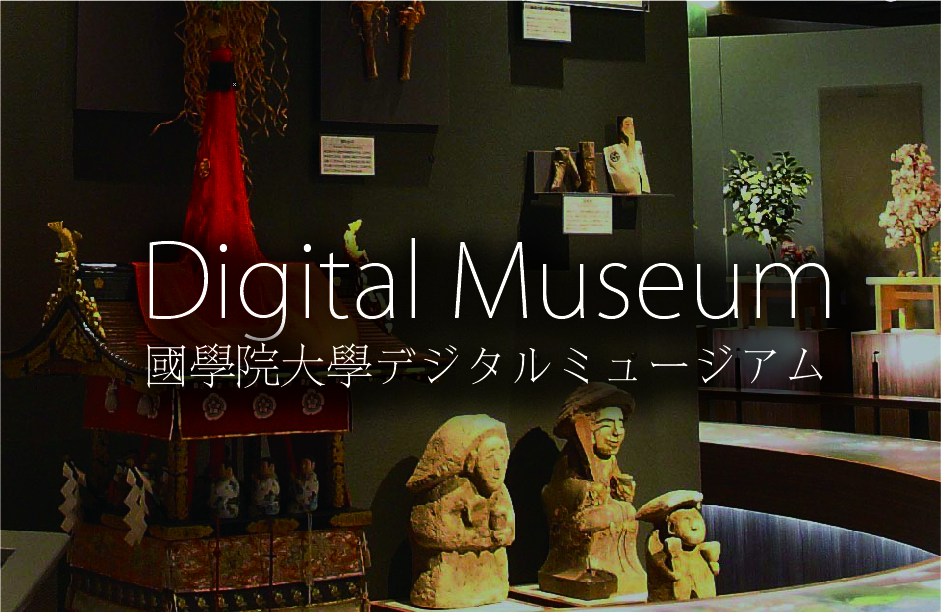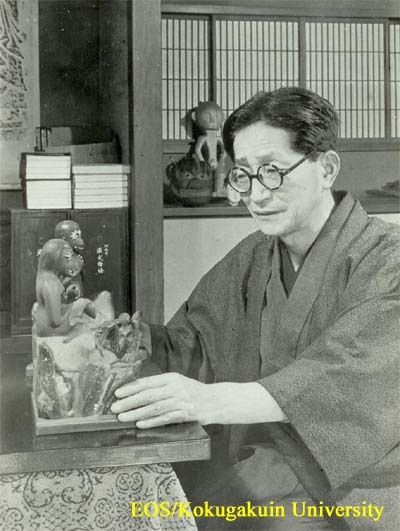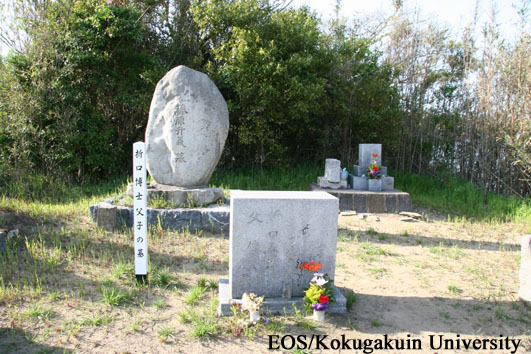- トップ
- Encyclopedia of Shinto
- Orikuchi Shinobu
Encyclopedia of Shinto
| Main Menu: | |
| Links: |
詳細表示 (Complete Article)
| カテゴリー1: | 8. Schools, Groups, and Personalities |
|---|---|
| カテゴリー2: | Personalities |
| Title | Orikuchi Shinobu |
| Text | (1887-1953) Scholar of folklore, Japanese literature and Shinto. As a poet, he wrote under the name Shaku Chōkū. Born February 11, 1887, to a merchant family in Kizumura Village, Nishinari District, Osaka, Orikuchi graduated in 1910 from Kokugakuin University. He worked for a while as a part-time teacher in Osaka before returning to Tokyo, where he met Yanagita Kunio (1875-1962) at a meeting of the Kyōdokai, a folk culture study group led by Inazo Nitobe (1862-1933). This encounter set him on his path to pursue folklore studies. At the age of thirty, Orikuchi completed a work entitled Kōyaku man'yōshū (The Oral Transmission of the Man'yōshū). In 1920 he was appointed permanent lecturer at Kokugakuin University, and the following year was made full professor. He also served as adjunct professor at Keio University from 1928. In the postwar period, Orikuchi taught introductory courses in Shinto at Kokugakuin University. Applying his observations to the meaning of Shinto as a religion, in particular regarding its nature in ancient times, he laid the foundations for a unique theory of Shinto. Terms such as marebito ("visiting kami") and tokoyo ("everlasting world") coined by Orikuchi have since come into common academic usage. Under his pen name, he produced works that reveal a personal academic style embodying a union of poetic intuition and scholarship. Orikuchi died May 3, 1953, at the age of sixty-seven. Beginning with his Kodai kenkyū (Studies of Ancient Times), his many theoretical and poetic works, including the song anthologies Umi yama no aida (Between the Mountains and the Sea) and Iwoguna, the poetry anthology Kodai kan'aishū (Sentiments of Love of Ancient Times) and the novel Shisha no sho (Writings of the Dead), can be found in his collected works Orikuchi Shinobu zenshū. —Tsushiro Hirofumi |






